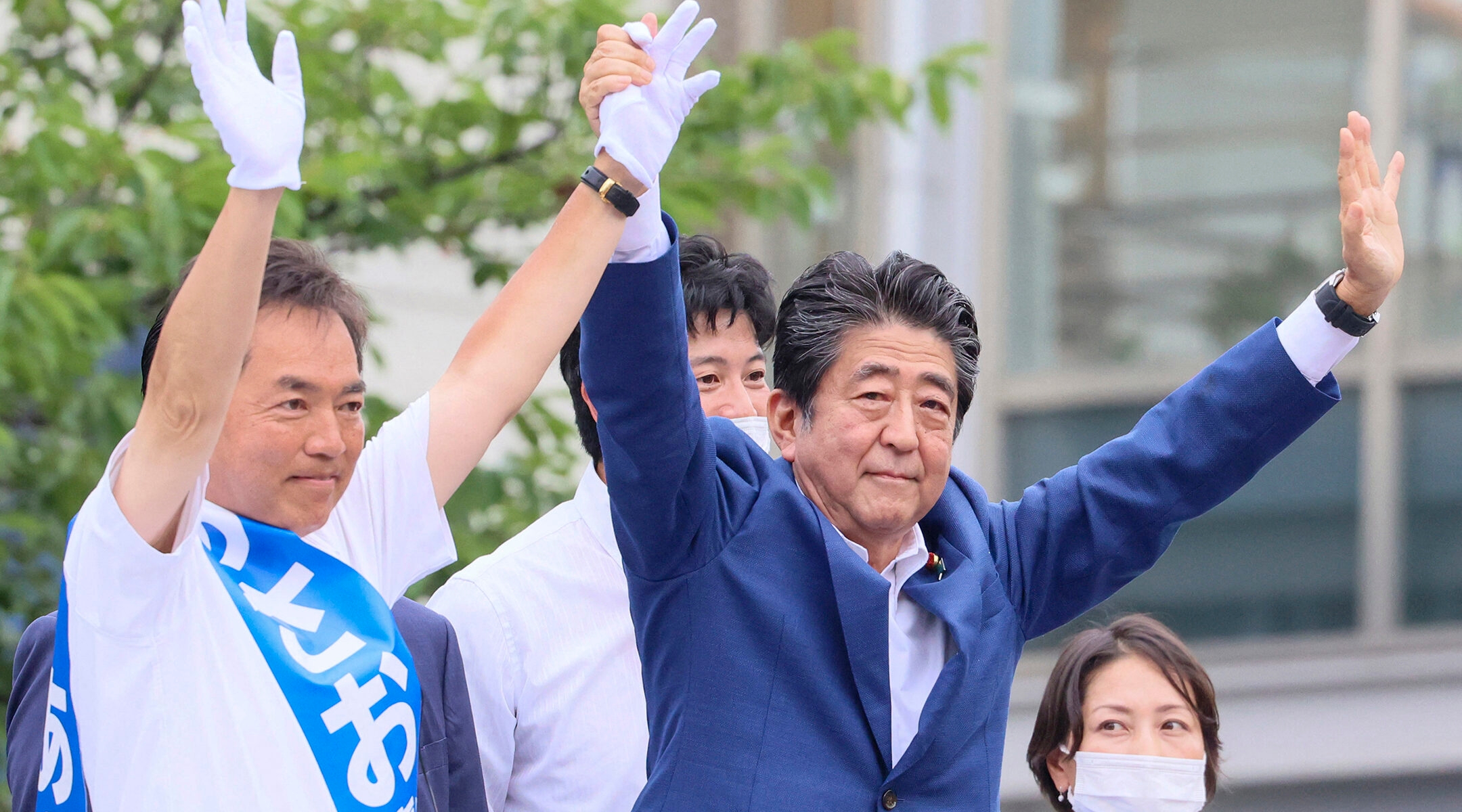(JTA) — Shinzo Abe, the former prime minister of Japan who boosted relations with Israel as part of his effort to increase his country’s global influence, was assassinated at a campaign rally on Friday.
Abe, 67, who led Japan from 2012 to 2020 after a short stint in 2006-2007, was speaking at a rally in Nara when he was shot multiple times from behind. Japan has some of the strictest gun policies in the world, and one of the lowest gun violence rates; the alleged shooter’s gun looked to have been homemade, NPR reported.
Abe was a staunch nationalist who sought to dramatically change Japan’s pacifist postwar character, increasing military spending and becoming more engaged with several world powers. His multi-faceted plans for sweeping economic reforms earned its own internationally known nickname: “Abenomics.”
Increased diplomacy with Israel was a prime example of Japan’s foreign policy shift during Abe’s consequential second tenure as prime minister. Due to its close ties with oil-producing Arab countries that were historically hostile to Israel, Japan had for decades been wary to establish warm relations with Jerusalem.
But by 2014, after a visit to Tokyo by then Prime Minister Benjamin Netanyahu, a leader who shared many of his Japanese counterpart’s right-wing characteristics, trade between the two countries had risen by nearly 10%. Beyond economics, the two leaders signed historic pacts to bolster tourism and security cooperation. Israel’s military expertise made the country a particularly attractive partner for Abe, a historian told the Jewish Telegraphic Agency in 2015.
“I am determined, together with Prime Minister Netanyahu, to make further efforts to strengthen Japan-Israel relations, so that the potentials are fully materialized,” Abe said at the time.
Abe returned the favor by offering in 2017 to host a four-way peace summit among Israeli, Palestinian and U.S. officials and then visiting Jerusalem in 2018. Things were going smoothly until the meal at Netanyahu’s residence ended with dessert served in a shoe — a major faux pas that made international headlines. In Japanese culture, shoes are kept outside of office and work spaces, a well-known taboo.
JTA has documented Jewish history in real-time for over a century. Keep our journalism strong by joining us in supporting independent, award-winning reporting.






